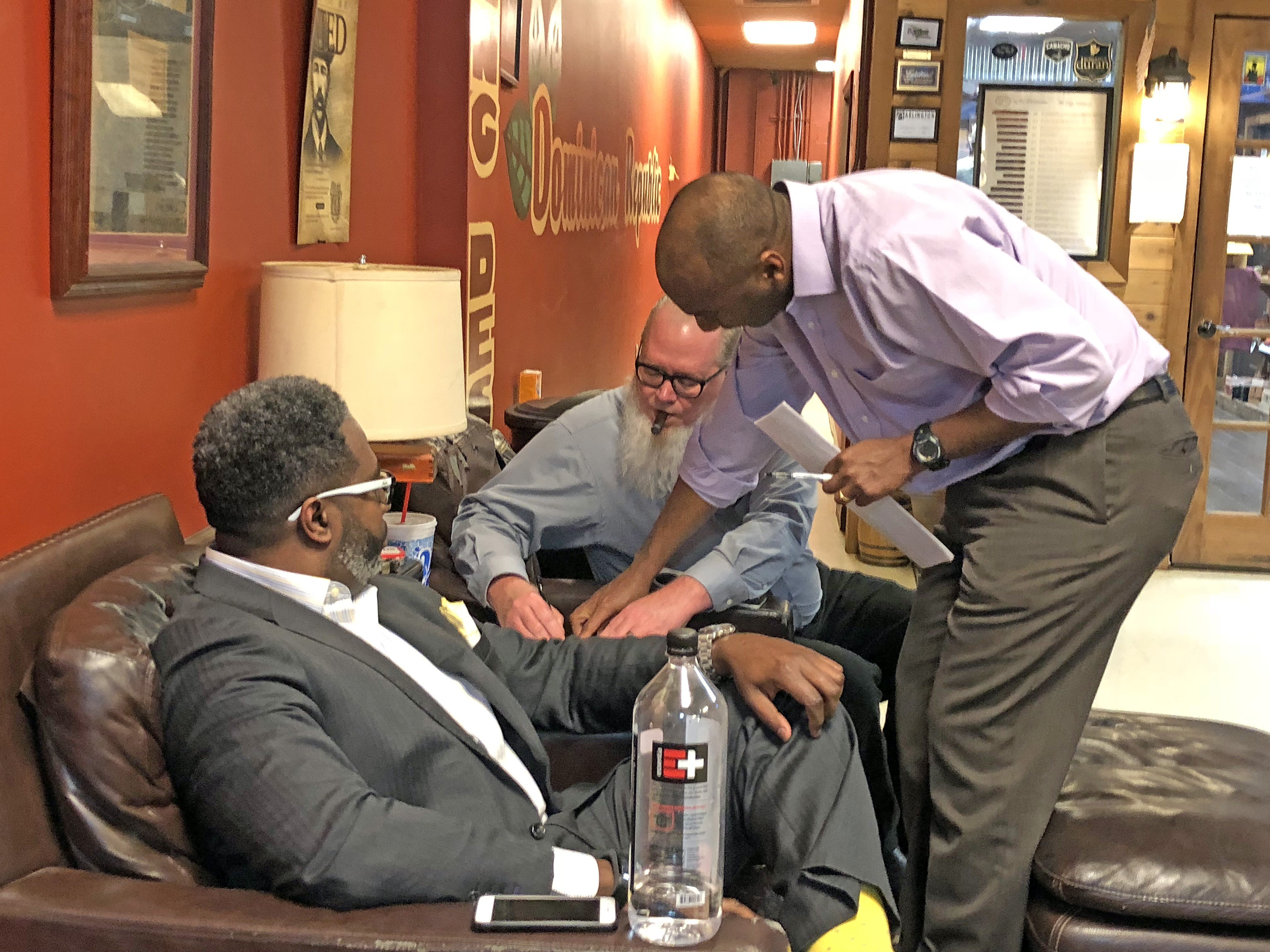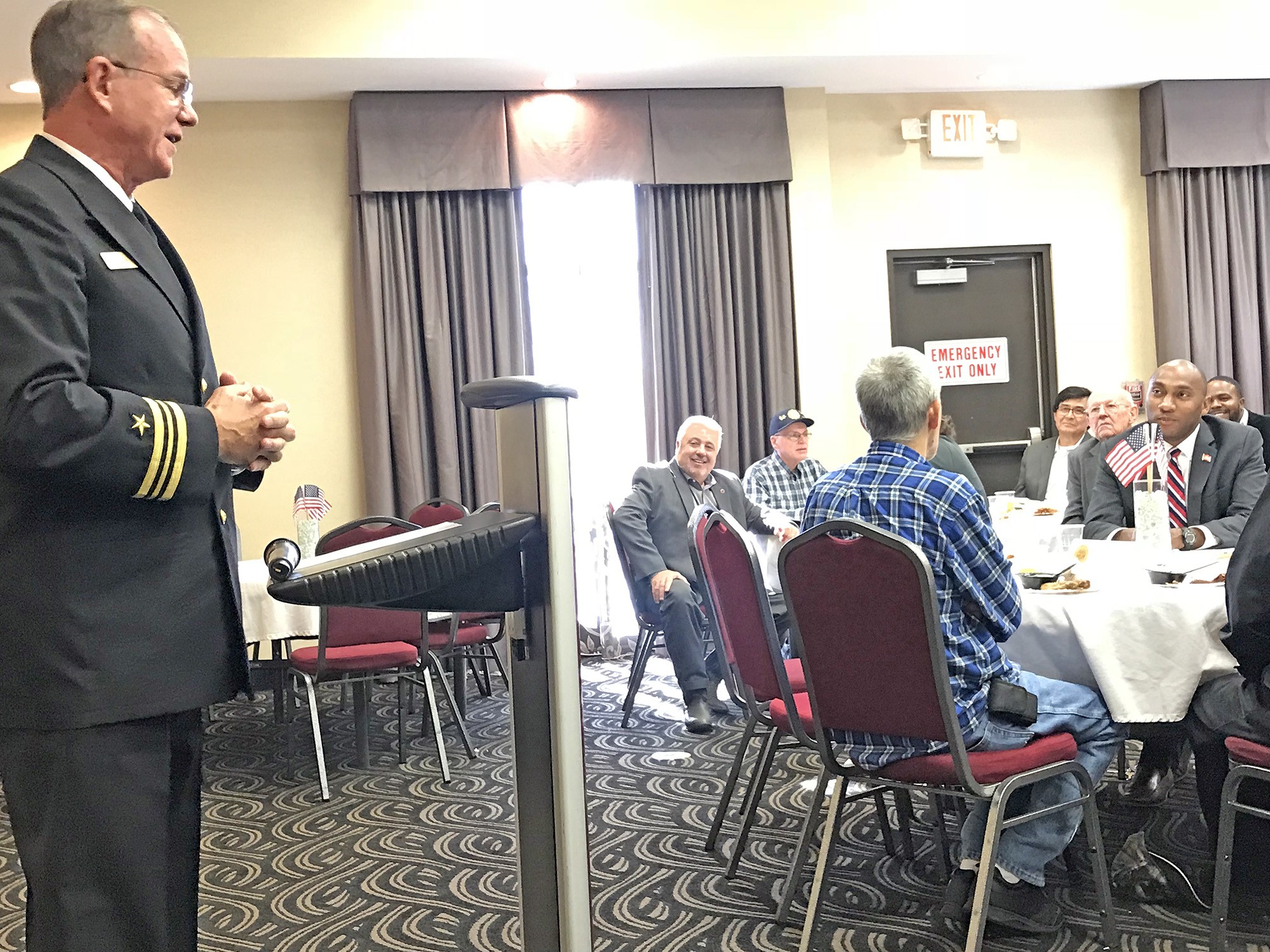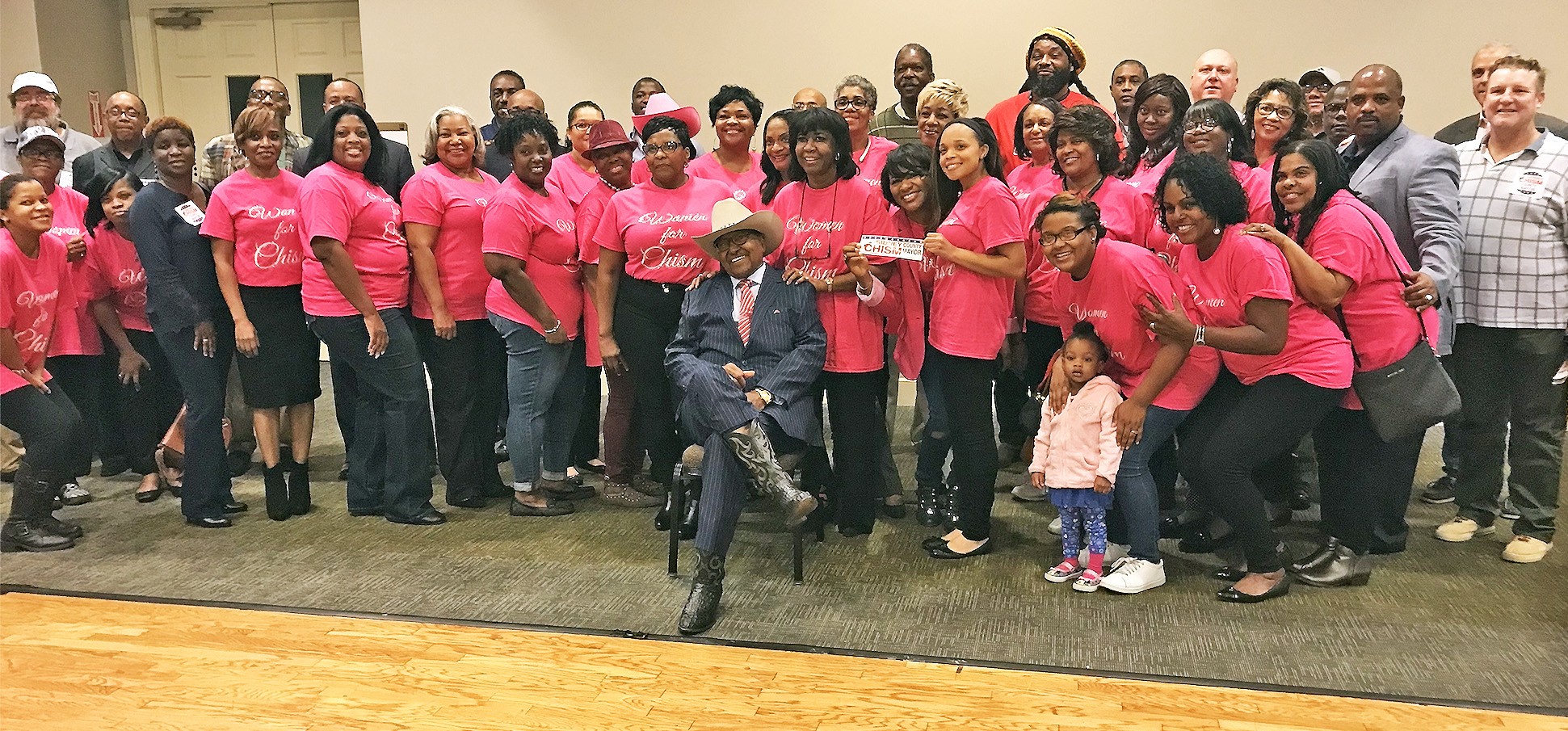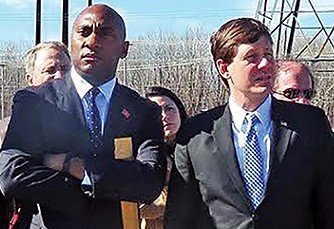Though competitive races for governor and senator in both major parties will dominate public attention in 2018, the other marquee race on the local ballot for 2018 remains that for Shelby County mayor.
As of now, it’s a three-way on the Republican side, with the contenders being Shelby County Commissioner Terry Roland, County Trustee David Lenoir, and Juvenile Court Clerk Joy Touliatos. Democrats running include state Senate Majority Leader Lee Harris and former County Commissioner Sidney Chism.
But, conspicuously, not all the shoes have dropped. Two major figures are on the cusp of decision: former City councilman and current Chamber of Commerce vice president Shea Flinn, and Harold Byrd, president of the Bank of Bartlett and a well-known former public official.
If Flinn runs — and that’s still a serious prospect — it will not be as a Democrat, though he served a brief interim term as a Democrat in the Tennessee state Senate, where, among other things, he broke away from orthodoxy by introducing the first serious measure to legalize marijuana.
He would run as an independent because he believes that partisanship is ruining American politics, that a combination of gerrymandering and low turnouts has ensured that a politics built upon genuine debate and constructive compromise is increasingly impossible, and that the two-party system itself has become unfeasible.
If Flinn runs, it will be a way of asking, as he has expressed it, “Have moderates had enough?” His thinking is that party nominees these days, in local elections as well as statewide and national ones, are determined by the most militant and committed members of both the Democratic and Republican parties, and that, consequently, winning candidates are beholden to relatively extreme views that are bound to be resisted by militant elements in the opposition party, and that governmental gridlock is the inevitable consequence.
His views on these matters are no secret; he has expressed them in radio interviews, and he holds them intensely enough to be on the verge of making an independent run for county mayor as an act of defiance against the intrinsic negativity of partisan politics.
There have been previous quasi-independent or third-party electoral efforts at the national level — Ross Perot‘s 1992 candidacy for president against Democrat Bill Clinton and Republican George H.W. Bush being a case in point — but these have ultimately come to naught, Flinn believes, because, as he sees it, these have been trickle-down movements lacking real grass-roots involvement. He thinks that reformation of the current two-party system can only begin to happen at the most basic, local level.
In other words, Flinn as a candidate would see himself as someone pursuing a reformist mission against a two-party politics that is endangering the country, but he also believes that he could win — particularly if the two major local parties nominate candidates from their militant wings.
To put that in concrete terms: a race in which the Republican nominee would be, say, Roland, the self-styled populist from Millington, versus Democrat Harris, a legislator from his party’s progressive wing.
But Flinn, who is confident of having significant financial backing, would see his independent mission still being relevant, and viable, if the party nominees turn out otherwise — that is, if the GOP nominee ends up being either Trustee Lenoir or Juvenile Court Clerk Touliatos, both regarded as mainstream Republicans, and if the Democratic nominee should become either Chism, a well-known political broker who has been a declared candidate longer than anyone else, or Byrd, whose intentions are still a matter of speculation.
At the moment, Byrd’s intentions remain, along with Flinn’s, the most significant unknown element in the developing mayoral picture.
As mentioned before in this space, Byrd has uncooked seeds remaining from his prior political experience. He was a longtime state Representative who thought long and hard about running for Congress and finally took the plunge in 1994, winning the Democratic primary for the 7th District seat fairly easily but coming up short against Republican Ed Bryant, the victor in a year which saw a Republican sweep and a GOP takeover of the U.S. House of Representatives.
Thereafter, Byrd’s home bailiwick of Bartlett became progressively more Republican, though he and other members of his family remained pillars both of the Bartlett community, through their ownership of the Bank of Bartlett and prominence in numerous civic endeavors, and in the Democratic Party, where brother Dan Byrd had continued to represent Bartlett well into the 1990s.
Harold Byrd first prepared to mount a serious race for county mayor prior to the race of 2002, organizing a coalition that included basic elements of the urban Democratic constituency along with suburban supporters in a campaign that would draw on significant IOUs, both political and financial, owed Byrd from decades of his involvement in public life. In a sense, that 2002 campaign, though Byrd would have been run as a Democrat, was aimed at being the kind of omnium gatherum of political opposites that Flinn may be contemplating for the campaign year of 2018. But it was forced to a halt mid-way by the unexpected entrance of then Public Defender A C Wharton, who was also able to draw on similar bipartisan sources of political and financial support.
For a variety of reasons that seemed practical to Byrd at the time, he withdrew, if reluctantly, and Wharton went on to win and serve one term and the better part of another before ascending to the mayorship of Memphis via a special election in 2009.
By general consent, the county mayor’s job might have been Byrd’s for the asking in the election of 2010, when the other major likely claimant, then Sheriff Mark Luttrell, a Republican, let it be known that he would defer and not run if Democrat Byrd chose to. But by then Byrd, a well-known fitness advocate, was recovering from a bout with cancer, and the bank he administered was having to deal with the aftershock of the Great Recession of 2008-2009.
Both factors kept Byrd from being a candidate that year, and Luttrell went on to run and defeat Democratic nominee Joe Ford.
But here it is, late 2017, and Byrd is once again looking seriously at running for county mayor. He has formed a Political Action Committee (Friends of Harold Byrd) for the purpose, and he has been steadily reaching out for assurances of support from well-known Democrats, both urban and suburban, who are either in office now or likely candidates for various positions next year.
Moreover, Byrd believes he still has, uniquely for a Democrat, significant support in areas of Shelby County where Republicans are used to dominating. And he is confident that he, more than any other Democrat, can raise the money necessary to run a fully empowered mayoral campaign.
The question remains: Will either Shea Flinn or Harold Byrd actually run for county mayor? Though nothing is absolutely certain, the likelihood is that both will — Byrd as a Democrat and Flinn as an independent.
Flinn had come very close to making an announcement this week, the Flyer has learned, and the odds — once rated by him as 70-30 in favor — still tilt toward his making the race. For his part, Byrd has set the end of the year as a personal deadline for decision, with the likelihood, he says, that one will come even sooner.
 JB
JB  JB
JB  Jackson Baker
Jackson Baker  JB
JB  JB
JB 


 JB
JB